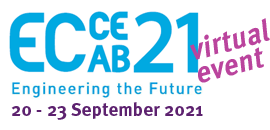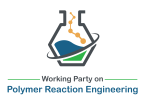

 |
ACHEMA 2022 World Forum and Leading Show for the Process Industries With manufacturers and service providers from over 50 countries presenting their products for chemical, pharmaceutical and biotech research and manufacturing as well as energy and environmental services ACHEMA is the driving force and groundbreaker for the international process industries and their suppliers. ACHEMA is home to people with ambitions. ACHEMA attracts 150,000 attendees from 150 countries who make a difference in the process industries and plan to take their business to a new level. There is no other event in the calendar that offers such a comprehensive mix of pioneering technology and global networking - an up-close experience that appeals to all the senses and inspires sustainable connections. Join the ranks and be there at ACHEMA 2022 from 4 - 8 April 2022! |
|---|---|
 |
aquila biolabs is a German life science company focusing on the development of innovative smart sensors and state-of-the-art data analytics software for bioprocessing applications. |
 |
At BASF, we create chemistry for a sustainable future. We combine economic success with environmental protection and social responsibility. More than 110,000 employees in the BASF Group contribute to the success of our customers in nearly all sectors and almost every country in the world. Our portfolio is organized into six segments: Chemicals, Materials, Industrial Solutions, Surface Technologies, Nutrition & Care, and Agricultural Solutions. BASF generated sales of €59 billion in 2020 and is one of the most top-selling companies in the Chemical Industry. The most profitable segment is Surface Technologies as it is responsible for about 28 % of the sales. To be the world’s leading chemical company for our customers, we will grow profitably and add value to society. This is how we create chemistry for a sustainable future. |
 |
De Gruyter – a publisher on the market for 270 years, releases 1300 new books, and over 650 journals. Special topics: chemical engineering, biotechnology, industrial chemistry, materials science, nanotechnology, energy, and more. Curious? Stop by our booth, discover us, and get 20% off your order. |
 |
DECHEMA e.V. is the expert network for chemical engineering and biotechnology in Germany. This non-profit professional society represents these fields in science, industry, politics and society. Around 100 subject divisions and working parties offer a forum for knowledge exchange among experts, based on trust. |
 |
Since 1953 the European Federation of Chemical Engineering (EFCE) has promoted scientific collaboration and supported the work of engineers and scientists in 30 European countries. Today, the EFCE represents more than 100,000 chemical engineers in Europe. With its Working Parties and Sections it covers all areas of Chemical Engineering. |
 |
Every year, the EFCE working party on polymer reaction engineering (WP PRE) hosts a PhD-workshop in a different |
 |
We help production teams stay safe and work smarter through better information sharing and collaboration. eschbach provides solutions for effective shift handovers, transparent team communication and increased asset performance. For over 15 years, our award-winning Shiftconnector® solution has brought shift teams together to improve safety and performance. In that time we have continuously developed Shiftconnector® in close cooperation with leading organizations in the chemical industry. Companies like BASF, Bayer and DuPont engage their workforce with our easy to use, yet powerful solution. eschbach is a provider of manufacturing solutions and headquartered in southern Germany with offices in Boston, USA. |
 |
EPSC: Industry Working Together on Process Safety The European Process Safety Centre (EPSC) is an international non profit network of major operators from chemicals, oil and gas industry, and consulting companies serving that industry, dedicated to the development and promotion of process safety. The association aims to promote and to share process safety technical and managerial best practices in Europe. It provides a platform to learn as an industry, to improve together and facilitate the elimination of process incidents. |
 |
ESAB was founded in 1980 and has become the European Society of Applied Biocatalysis MISSION: Promote the development of Applied Biocatalysis throughout Europe AIM: Take initiatives in areas of growing scientific and industrial interest and importance in the field of applied biocatalysis
|
 |
The Fraunhofer-Gesellschaft, headquartered in Germany, is the world’s leading applied research organization. With its focus on developing key technologies that are vital for the future and enabling the commercial exploitation of this work by business and industry, Fraunhofer plays a central role in the innovation process. As a pioneer and catalyst for groundbreaking developments and scientific excellence, Fraunhofer helps shape society now and in the future. Founded in 1949, the Fraunhofer-Gesellschaft currently operates 75 institutes and research institutions throughout Germany. The majority of the organization’s 29,000 employees are qualified scientists and engineers, who work with an annual research budget of 2.8 billion euros. Of this sum, 2.4 billion euros are generated through contract research.
The newly founded Fraunhofer Chemistry Alliance builds on the proven collaboration of various Fraunhofer institutes with the chemical industry. Our goal is to leverage interdisciplinary synergies to support our industrial customers in technology development and upscaling to deliver sustainable, innovative products and processes. With our know-how, inventiveness and infrastructure, we are a strong partner to the chemical industry on its ambitious path to defossilized production processes and circular transformations. |
 |
The National Early Careers Committee (UK and Ireland) is an active, inter-connected community of IChemE members. The committee is made up of a balanced representation from each active regional group, with additional members co-opted on an individual basis, based on an evaluation of the unique contributions they would make to the committee. As chemical engineering develops, so too will the committee. The goals for the committee are:
If you wish to volunteer and contribute towards the committee please email us. You can also find us on Facebook and LinkedIn. |
|
INFICON is a leading manufacturer of gas detection instruments (field-portable and stationary) for on-site assessment, characterization and monitoring. From research and development to production, we are investing in gas analysis technologies to help enable you to operate more efficiently. |
|
 |
Jobst Technologies’ biosensors enable continuous process analysis of glucose and lactate, as well as glutamate, and glutamine concentrations in bioprocessing applications. |
 |
JMP is a business unit of SAS Institute that produces interactive software for desktop statistical discovery. Pronounced “jump,” its name suggests a leap in interactivity, a move in a new direction. John Sall, SAS co-founder and Executive Vice President, created this dynamic software and remains its chief architect and leader of the JMP division. Introduced in 1989 with scientists and engineers in mind, JMP has grown into a family of statistical discovery products used worldwide in almost every industry. From its beginnings, JMP software has empowered its users by enabling interactive analytics on the desktop. |
 |
kjVI - the creative young process engineers (German: kreative junge VerfahrensIngenieure). We are a group of students, PhD students, and young process and chemical engineers who have just started their professional life. Our goal is to enthuse young people for process engineering, to accompany students during their time at university, and to fascilitate their start into professional life. At the ECCE / ECAB we are organising the kjVI Youth Programme. In addition, the exciting final race of our ChemCar competition will take place at the congress on wednesday." |
 |
For more than 80 years, Beckman Coulter Life Sciences products have been making a difference in people’s lives by improving the productivity of medical professionals and scientists, supplying critical information for improving patient health and delivering trusted solutions for research and discovery. Scientists use our life science research instruments to study complex biological problems including causes of disease and potential new therapies or drugs. In November 2020, Beckman Coulter Life Sciences acquired m2p-labs. BioLector® microbioreactors based on the microfermentation technology of m2p-labs (now part of Beckman Coulter Life Sciences) enhance high-throughput bioprocessing with or without O2, and are fast, easy and fit in any lab. The new BioLector XT microbioreactor enables real-time evaluation of biomass, fluorescence, pH, DO, and other key cultivation parameters for aerobes and anaerobes to quickly provide deep insights into your bioprocess development. Every solution we create starts with you, and the performance, accuracy and workflow efficiency you need. Reliable engineering is built in, so that you can count on your instrument to meet the demands of your lab, time after time. We’ve continually introduced new innovations to improve your workflow, culminating in a full family of cell counters including our Vi-CELL cell viability platform and the Multisizer 4e particle size analyzer. Each takes a different approach to help you count, size and monitor cell health, featuring sophisticated, industry-leading technology. They're powerful, versatile and precise platforms, yet still user-friendly and intuitive. So whether you're looking for full automation, in-depth results, or simply a level of reliability unmatched in the industry, you're sure to find a solution that meets your needs. |
 |
NaWuReT (Nachwuchs Reaktionstechnik) is a group of early-career scientists from the ProcessNet Subject Division Reaction Engineering, Germany. The aim of this group is to bring together young professionals from industry and academia in the field of reaction engineering in Germany and to fuel exchange and networking. We organize several workshops per year to discuss urgent topics, like academic and industrial career paths, relevance of our own research, hot research topics, etc. ECCE/ECAB 21 in Berlin is a great opportunity to expand this network to the European level. We happy to introduce our goals and mission to you and get in touch with interesting people. |
 |
RE∇CNOSTICS models, designs and builds chemical research reactors for the spatially resolved investigation of catalytic processes. Our methodology includes simulations and operando measurements of concentration and temperature profiles in combination with spectroscopic catalyst characterization. Using patented methods, we provide insights into catalytic reactors during time on stream, which enables knowledge-based optimization. |
 |
SOPAT develops and sells a photo-optical and image-based analysis measurement technology that quantitatively characterizes particulate multi-phase systems. In combination with our hardware, the innovative SOPAT software provides real time analysis of particle size distribution and characteristics. Our goal is to produce tailor made particle measurement systems for our customers that allow for the early detection of trends and efficient process optimization. This advantage leads to cost reductions in both time and personnel that increase product quality as well as considerably reduce waste. |
 |
The Fuel Science Center (FSC) – Adaptive Conversion Systems for Renewable Energy and Carbon Sources aims at the generation of fundamental knowledge and novel scientific methods for the development of sustainable technical solutions to valorize renewable electricity and alternative carbon feedstocks into liquid energy carriers for CO2-neutral and near-to-zero pollutant emission propulsion systems. |
 |
The Young European Catalysis Network (YEuCat) is a new network for young professionals in catalysis. Connect, share knowledge, #GetActive. Supported by EFCATS |

DECHEMA e.V.
Theodor-Heuss-Allee 25
60486 Frankfurt am Main
Germany
Contact
 #ecceecab21
#ecceecab21